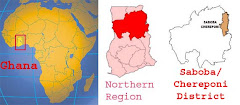When I think of some of the ethics involved in development one word in particular comes to mind. Accountability. Who are Non-Governmental Organizations (NGOs) accountable to? Ideally in the public sector, if a government does not provide services, they are accountable to their people. In democratic societies, leaders can be re-elected or removed from office if they are not performing. In theory, farmers have the power to vote for the leader they believe will provide them with the best services.
The private sector also has a form of accountability. By the very nature of competitive industry, companies or players in the private sector that don't perform, will eventually run bankrupt. There is a quasi accountability to the market, to perform and remain competitive. Companies are continually driven to innovate and improve their products, to evolve, so that they can survive in a competitive market. Ideally, farmers would be able to chose the vendors (fertilizers, treadle pumps, etc) they think provide the best advantage or quality.
But the third sector, the civil society, does not have this same accountability. NGOs rarely ask permission to work in a certain geographic region, or to run their projects. They are free to come and go, independent of the local government, and are rarely bound by laws or policies that limit their mobility within a recipient country.
This poses the question of: what power do the intended "beneficiaries" of these projects hold, to dictate the direction of an NGO's agenda? Certain comfort can be found in the notion that NGOs are there to serve, and that they are acting in the best interests of the poor. But what happens when a project does not benefit the poor? What happens if the projects have negative implications on the poor?
Almost all of the projects that are done are intended to benefit those living in poverty. But needless to say, mistakes happen, and have happened. We need to ask: what we are prepared to do to compensate those that we effect?
Let's bring this back home. In Canada, if a new product is tested on a population, some companies give free trial runs, and some will even pay the patients. People are provided an opportunity free of risks, and sometimes even paid.
Overseas, NGOs move in and out of communities, implementing this project or introducing this technology, with little to no accountability, let alone paying people for their time. Of the many rural farmers that have been "test subjects" for "appropriate technologies", what remuneration or compensation have they received for their monetary investment in some cases, and time commitments in all instances?
I'm not suggesting that all NGOs enter communities, do damage, and leave unaffected. There are many cases of successful interventions and projects that have benefited many of the marginalized people of developing countries. I only raise this question as a metric, a code of conduct. Who loses? This question we need to constantly ask ourselves and use to check our work, because there are people who stand to lose; people who stand to lose big. The poor, who are already vulnerable to outside shocks as it is, can ill-afford to have NGOs exacerbating their struggles with failed projects.
If we are not ready to stand by our projects, when they succeed and when they fail, then maybe NGOs need to re-evaluate their accountability to the people they aim to help.
Sunday, February 17, 2008
Subscribe to:
Post Comments (Atom)



2 comments:
I don't really understand the structure of NGOs, but wouldn't they be accountable to their funders? The people who invest in such organizations would likely demand a certain quality/productivity in exchange for their continual investment.
Although, I am not necessarily sure this would be the best form of accountability. It would definitely push organizations to strive for "reportable results" from their projects, which may not always be the most needed forms of assistance. In the ideal world, what would be the best form of accountability for these organizations?
Another thing I was wondering about, you say that failed projects are not fair to the communities, and I completely agree. But how would an NGO forsee all variables to know a project would fail? I imagine they consider as much as they can and go through a rigorous process of deciding which projects to implement. Even so, something they expect to work may still flop unexpectedly. So with that in mind, how could they fairly compensate communities that are subject to failed projects?
. Everyone has their favorite way of using the internet. Many of us search to find what we want, click in to a specific website, read what’s available and click out. That’s not necessarily a bad thing because it’s efficient. We learn to tune out things we don’t need and go straight for what’s essential.
This goal-oriented way of surfing the web is largely based on short-term results. For example, finding facts to write a blog post, doing a comparison before making a purchase and reading a news site to find out what’s happening right now.
www.onlineuniversalwork.com
Post a Comment